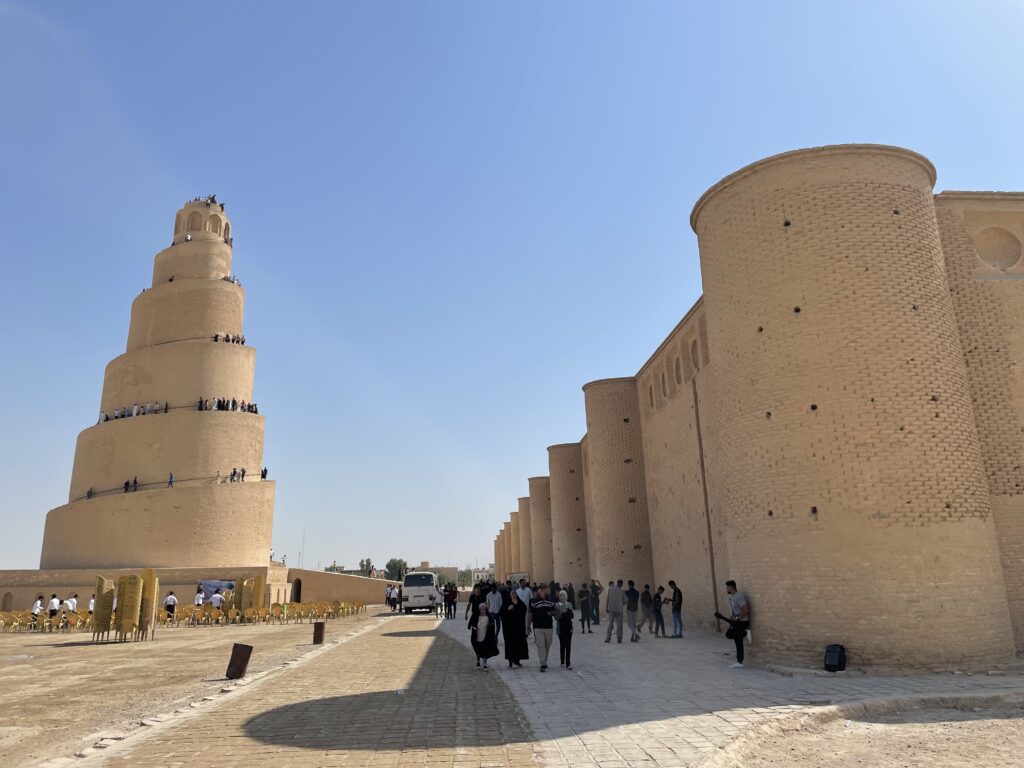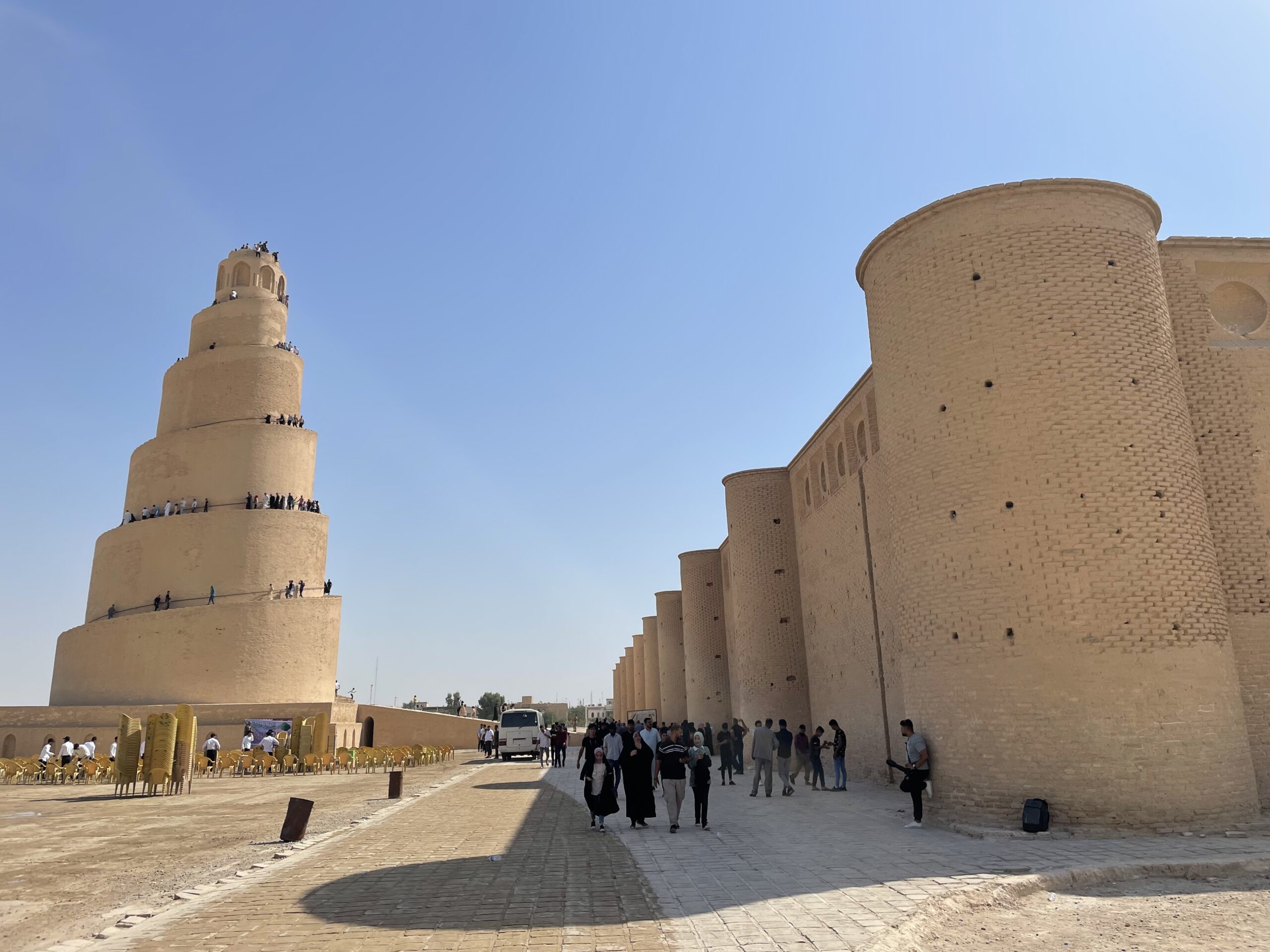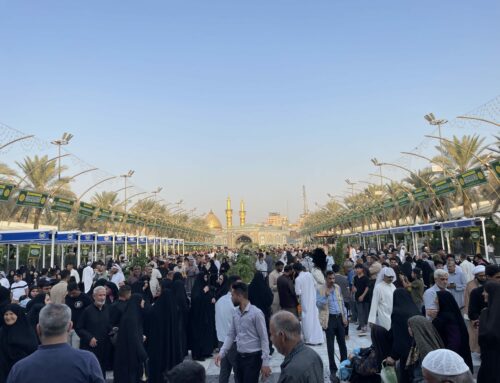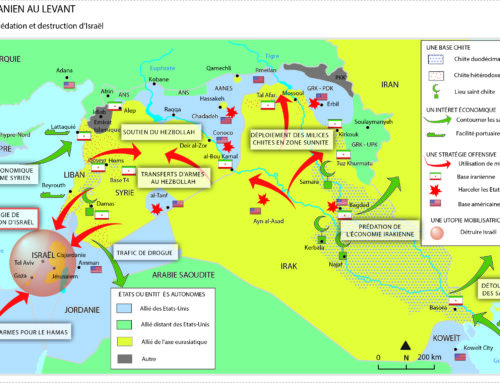In an exclusive interview for the CFRI, Fabrice Balanche discusses the current state of the Iraqi economic, heavily dependent on its oil exports. He explains why he thinks western companies could potentially do business with the country to counter China and Iran’s growing influence. 22nd February 2023
What is the current state of the Iraqi economy?
The Iraqi economy is extremely dependent on oil revenue. Nearly 5,000,000 barrels are produced per day, 75% of which are produced in southern Iraq, more precisely in the province of Al-Basra and nearly 25% in the Kirkuk fields in Iraqi Kurdistan. Iraq is increasing its oil production, in order to export it. In other words, 70% of its production is destined for export. It is obviously the main resource of the country. The Iraqi state pays an oversized civil service, investing little in the development of the territory, in electricity production and especially due to the fact the country has no serious plan for economic development. Then, we must note the difficulties of the Iraqi State to finance reconstruction since most of its budget subsidizes the maintenance of the civil service and especially structural corruption.
How does the international and regional geopolitical game impact the Iraqi economy?
The Iraqi economic situation is that of a country solely dedicated to the production of oil, itself being the biggest obstacle to building a productive economy through its agricultural or industrial sector. Lastly, the country’s independence is greatly hampered by Iran. Indeed, the Iranians export more than 10 billion dollars per year to Iraq, manufactured products, agricultural products, not to mention electricity since 1/3 of Iraqi electricity comes from Iran. The products arrive on the Iraqi market almost without any tax. So any economic development, any attempt to revive a production economy in Iraq comes up against this dumping of Iranian exports. Iran needs Iraq to circumvent the international sanctions of the Iraqi financial system in order to launder money and find liquidity. There is therefore absolutely no question of allowing economic development take place in Iraq, it is a kind of colonial pact that exists between Iran and Iraq. The Iraqis thus consume Iranian products but also Chinese products, to the advantage of the Iranians since the signing of the strategic pact between China and Iran in return for retrocommissions, which are paid to the Iranians. This Sino-Iranian agreement also provides benefits for the Islamic Revolutionary Guard corps. Turkey also benefits since Iraq is an important market for it.

Samarra – october 2022
What difficulties are Western companies having to overcome to establish themselves in Iraq?
It is extremely complicated for Western companies to work in Iraq right now. Firstly, because it is an extremely corrupt environment. Secondly, because Western companies that are involved in corruption and bribery cases can find themselves accused by NGOs, in France or elsewhere, which is in itself enough of an incentive not to set up their company in Iraq. For example, many Western oil companies, have left Iraq because of this extremely corrupt environment or because they may to be forced to have subcontractors imposed on them by the Iraqi national oil company. These same oil Iraqi companies who themselves would be under US sanctions.
For a company like Total, for example, which would like to sign a contract with Iraq, the difficulty lies in the fact that this company cannot refuse subcontractors that it is forced to take, even if they are under sanction. This situation means that Total would become complicit with Iran of having circumvented US sanctions, so it could face a significant fine from the US. This is something that any Western company must consider when it wants to work in Iraq. Therefore, it is better to try to work elsewhere.
Nevertheless, the West still has a card to play since the Iraqis do not want to be completely dependent on China. The latter exploit almost 50% of Iraq’s oil and Iraq does not want to find itself under the domination of Chinese operators. For this reason, Iraq wants Western companies to continue working in the country in order to increase oil production. Thus, the production target should increase to 7 or even 8 million barrels per day.
Local and divergent interests of different tribes, militias and political parties must also be taken into account. Geopolitically, the Iranians prefer not to leave a contract to countries like France which ultimately does not weigh in considerably on the geopolitical scene. They prefer to keep the slots reserved for western companies to the United States in the hopes of easing their economic sanctions. However, in the event that, Iran by approving Iraqi contracts to French companies, succeeds in lifting certain sanctions on its economy, then Iraq would not oppose it. Nonetheless, this will be less than ideal as the United States always decides as a last resort.
Iran-backed militia fighters march in central Baghdad, Iraq, Tuesday, June 29, 2021. Iraqi Shiite militias are showing a degree of defiance of their patron Iran by escalating rocket and drone attacks on the U.S. presence in the country, militia and Shiite political leaders say.
Why is the inter-militia game important for understanding Iraq?
There are about 80 major militias in Iraq, which are under the umbrella organization: Hashd al-Shaabi (i.e. popular mobilization) and contribute to the budget of the Ministry of Defense. They are also simultaneously paid by the Iraqi state. These different militias are now turning into businesses, each militia has a territory and if there is economic activity in this territory, the militia must be paid. If the Iraqi state wants to develop roads, infrastructure in a particular place, it will rely on a militia, which will choose the contractors, or even become an entrepreneur itself. This year, for example, a public works company was created for the militias so that they could officially benefit from public contracts and dispense with intermediaries that could be represented by the private sector. For this reason, the budget is very difficult to pass, everyone wants their share, negotiations are endless between the different militias so that no one is harmed. As a result of this system, Iraq avoids building substantial infrastructure, such as a power plant for example because it would only benefit a few people, unlike a scattering of investments throughout the territory through the road network that will benefit everyone.
The Ministry of Defense talks a lot about arms purchase contracts in France, I do not believe in it because it would only benefit a few people. Moreover, this would mean that pro-Iranian militias would get their hands on the best weaponry, which represents a risk of technology transfer to Iran (especially for fighter jets for example). On the other hand, there is a project to build a wall on the border between Iraq and Syria, officially to prevent Daesh infiltration. This project, which uses public spending, extends from the province of Anbar to Sinjar, and will feed the various Shiite militias, which control this border. This aspect helps to explain why such project is much more likely to be chosen.






